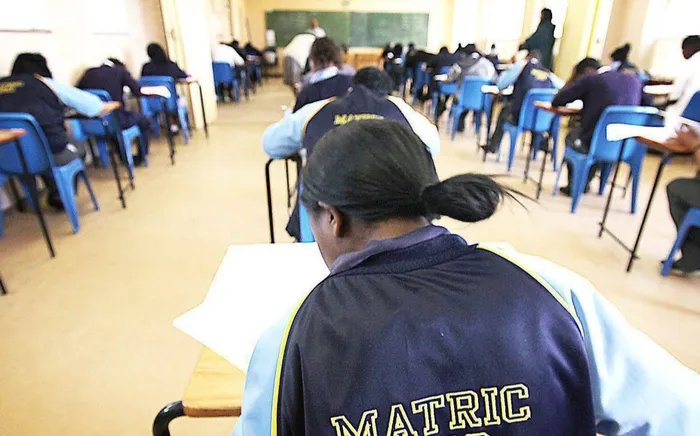Educational activist cautions against "headline targets" in KZN’s matric pass

Quality education requires more than just impressive statistics, said educational activist Hendrick Makaneta.
Image: Thomas Holder
EDUCATIONAL activist Hendrick Makaneta challenged KwaZulu-Natal's ambitious plan to raise matric pass rates to 95%, warning that without addressing systemic inequalities, the target risked becoming a political headline rather than meaningful educational improvement.
He believes quality education requires more than just impressive statistics.
“The goal of improving the KZN matric pass rate from 89.5% to 95% by 2025 is ambitious and while it signals a positive commitment to raising standards, there is a risk that it becomes more of a political headline than an educational milestone if not backed by systemic support and realism,” he said.
He stressed that achieving a 95% pass rate was feasible only under “ideal conditions”, something that, in his view, South Africa’s deeply unequal education landscape did not provide.
“Without addressing underlying issues like infrastructure and overcrowded classrooms, such targets can feel more aspirational than grounded. There is a fine line between motivating improvement and setting zaschools up for failure,” he said.
He warned that blanket goals often ignored the realities faced by under-resourced schools, particularly in rural and township areas, where pupils struggled with basic needs such as transport, nutrition, and textbooks.
“Uniform targets often fail to reflect the vast disparities between well-resourced urban schools and rural or township schools grappling with basic needs. A one-size-fits-all approach ignores the challenges many teachers and pupils face daily,” he said.
Makaneta urged a deeper look at what the pass rate actually measured.
“A pass rate only tells us who met the minimum threshold. It does not necessarily reflect depth of understanding or critical thinking ability. You can have a high pass rate while pupils are still struggling with literacy and numeracy. Quality, not just quantity, must be part of the conversation.”
He warned that pressure to meet rigid targets could lead to unhealthy and even unethical practices in schools.
“Setting a blanket goal like this risks creating perverse incentives - such as encouraging schools to push borderline pupils through at the expense of real learning, or neglecting the most vulnerable pupils who might ‘pull down’ the stats.”
In some cases, he noted, schools may even resort to gatekeeping, mark manipulation, or discouraging weaker pupils from writing final exams, all in the name of protecting pass rate statistics.
“Ironically, in trying to improve equity, rigid targets can deepen it. Under-resourced schools may feel immense pressure to perform without the tools to do so, leading to burnout, demotivation, and, in some cases, manipulation of marks or gatekeeping of pupils.”
Makaneta emphasised that pupils with learning difficulties, language barriers, or who come from impoverished backgrounds needed more than just performance pressure, they needed systemic support and flexibility.
“Pupils with learning disabilities, language challenges, or who come from high-poverty backgrounds need tailored support, not to be held to a generic metric. Improvement plans should include expanded psychosocial services, differentiated learning strategies, and inclusive education training for teachers.”
Beyond the academic pressure, Makaneta called for a healthier education system that valued the well-being of both pupils and teachers.
“High-stakes pressure to perform can negatively impact both pupils and teachers. Teachers may feel blamed for circumstances beyond their control, while pupils can face anxiety and stress if the system values results over individual growth.
“A healthier education system balances performance expectations with the well-being of pupils and teachers.”
While Makaneta acknowledged the intention behind the education department’s drive to improve matric results, he underscored that long-term transformation required more than goal-setting, it demanded investment, realism, and a pupil-centered approach.
Related Topics: